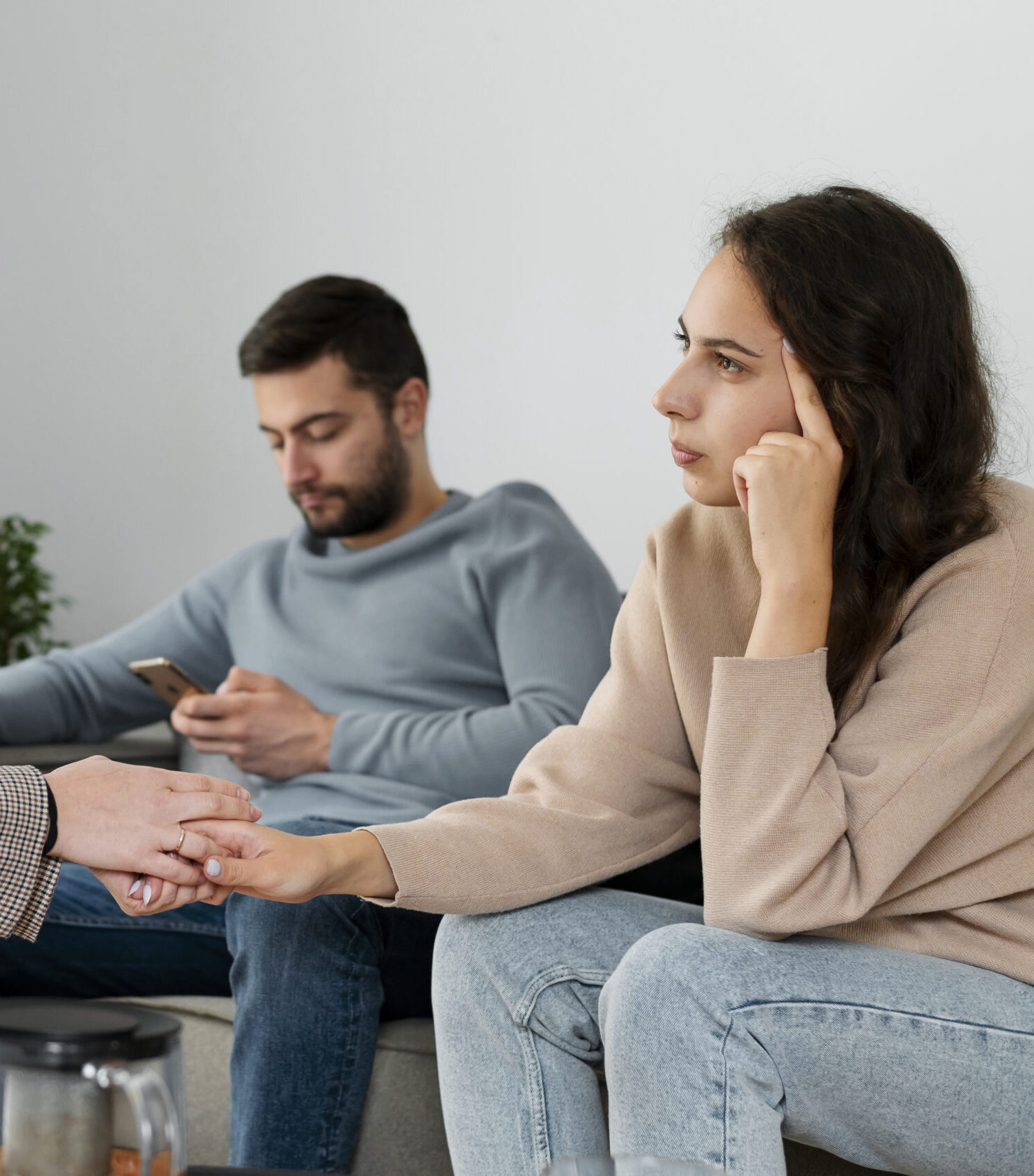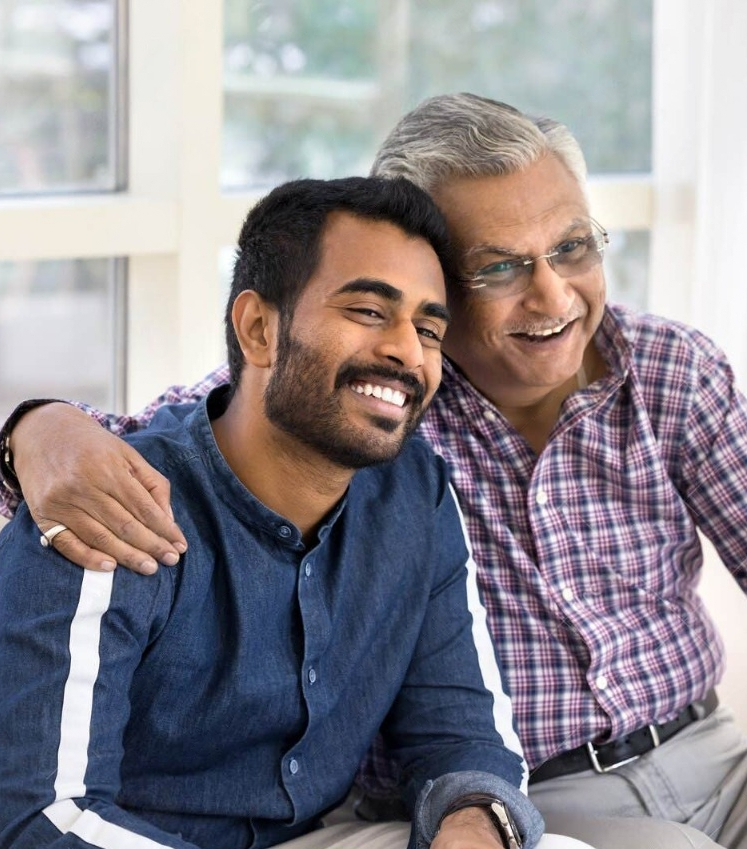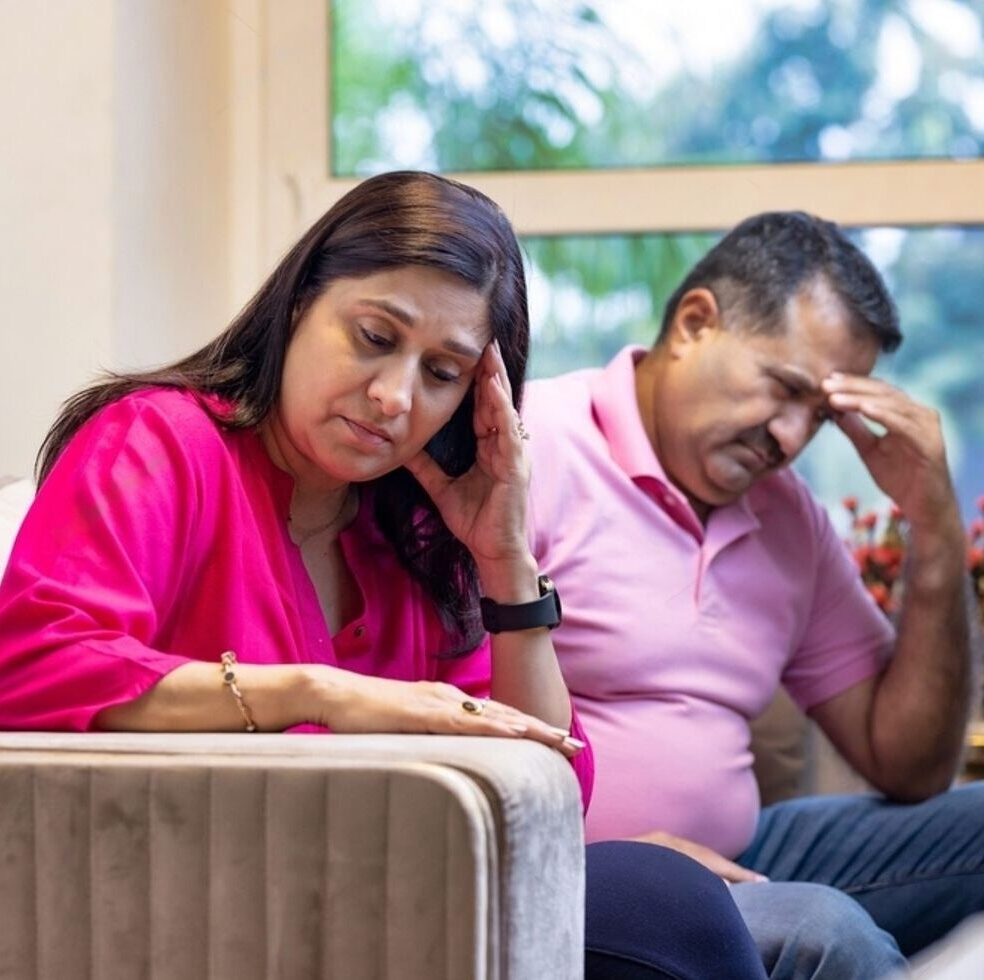Relationship
Relationship is fundamental for a healthy and satisfactory life. Relationships and mental health have a bidirectional effect. The effect of relationships on mental health is stronger than vice versa. Only human relationships provide lasting satisfaction or happiness but in today’s times relationships are becoming quite toxic. Romantic and platonic relationships with our loved ones bring us great joy, meaning, and a sense of understanding and connection. Every relationship struggles at some point—from arguments to intimacy problems and financial troubles. Some level of conflict in a relationship is normal, and it can even help us grow and connect. Often the complete lack of conflict is a red flag that partners are disengaged. In some cases, relationship problems can lead to symptoms of common mental health conditions, such as anxiety disorders and depressive disorders. Sometimes, relationship challenges can lead to emotional or physical abuse. When relationship issues become frequent or severe, they can interfere with our daily lives. Good relationships run smoothly and enable you to enjoy your life, work, and activities beyond the relationship. You’re not always worrying or talking about it. Like a smooth-running car, you don’t have to keep repairing it. You may have disagreements and get angry, but you still have goodwill toward one another, talk things over, resolve conflicts, and return to a loving, enjoyable state.
Signs of Relationship Issues
Relationship problems are different for everyone, and psychological and emotional responses to relationship challenges vary widely from person to person. Some of the most common symptoms of relationship challenges include:
Excessive anxiety or worry: You might be preoccupied with concerns about your relationship or experience anxiety symptoms. Some of the physical symptoms of anxiety include feelings of fear and dread, shortness of breath, heart palpitations, nervousness, rapid heartbeat, chest pain, dizziness, panic attacks, dry mouth, insomnia, and nausea.
Sadness or depression: Depending on the severity of your relationship challenges, You might experience a depressed mood, a major depressive episode, or other depression symptoms. Some of the symptoms of depression include a loss of interest in daily activities, fatigue, restlessness, changes in appetite, feelings of hopelessness, and negative thoughts.
High stress levels: You might feel overwhelmed or experience the physical symptoms of stress, including muscle tension, chronic pain, headaches, sleep problems, and digestive problems. Over time, high cortisol levels can lead to long-term health problems and medical conditions, such as weight gain, high blood pressure, heart disease, and even heart attack and stroke.
Conflicts with friends and family members: If you’re struggling with relationship challenges, you might find that other issues arise with friends, family members, or loved ones due to resentment or irritability.
Low self-esteem: Feeling insecure in your relationship can lead to feelings of worthlessness and self-esteem issues.
The following are the reasons for problems in relationships:
Communication issues, Trust issues, Lack of intimacy, Differences in values and goals, Financial stress, Infidelity, Lack of commitment, Abuse (emotional, physical, or verbal), Neglect, Unrealistic expectations, Jealousy, Possessiveness, Lack of independence, Lack of respect, Differences in personality, External factors (family, friends, work, etc.), Lack of emotional support, Different priorities, Lack of forgiveness, Holding grudges, Incompatibility, Incompatible life goals, Unresolved past issues, Ego, Lack of quality time, Emotional neglect, Battling over chores
There can be more than 50 reasons due to which relationships get spoiled and problems arise.
Solutions
Relationships are considered a sacred bond that binds families and communities together. It symbolizes not only personal commitment but also a social contract. Yet, in the evolving landscape of modern India, where traditional values meet contemporary aspirations, the sanctity of relationships is often put to test. Amidst these challenges, the concept of relationship counselling emerges as a ray of hope, offering avenues to understand, heal and strengthen relationships. Historically, the idea of seeking help from outside the family circle for relationship issues has been viewed with suspicion and stigma. Whether it is a marital or father-son relationship or other relationships. However, as social norms evolve, there is recognition of the importance of professional help in addressing the complexities of relationships. Gladful Minds is at the forefront of this transformational movement, providing accessible, empathetic and culturally sensitive relationship counselling services designed for the Indian context. Relationship counselling also aims to deepen relationships, increase empathy and promote a healthier, more joyful partnership. The benefits include improved communication skills, increased emotional intimacy, better understanding of each other's needs and desires, and effective conflict-resolution strategies. Relationship counseling is a vital step towards rekindling love and ensuring the longevity of their union. Gladful Minds plays a vital role in the paradigm shift, and provides customized relationship counseling services respecting cultural nuances while promoting the universal values of love, respect, and mutual growth. Our sessions take place in a professional, confidential, and safe environment to encourage trust and openness.










FAQs
Because relationship challenges vary widely, it’s difficult to determine their exact prevalence. However, recent research studies suggest that relationship problems are widespread, especially in romantic relationships.
India has come a long way since its freedom from the British imperialism in the eighteenth century. Not just relative to economic development and advancements in other fields but more, in its progressive societal outlook. A long transcendent sojourn from a traditional orthodox and parochial society to one that is more-broad minded and, to a great extent, heavily influenced by the Western culture. Even though India is home to the Kamasutra and while ancient Indian literature has profusely and openly talked about the importance of love and pleasure during intercourse, the term sex and talking about it in public remains taboo. What is more, it has been grossly misinterpreted and even stigmatized to the point where it elicits shame and embarrassment. This is also one of the primary reasons why sex education in India is fundamentally non-existent. In addition, children have to resort to sources such as the internet for information, which can further distort their ideas of love and sex.
New age Millennials and Generation Zs
Up until a few decades ago, concepts such as divorce, premarital sex, or even love marriages were almost unheard of in the country. While in the West, dating is the usual precursor to marriage, in India, such a notion was frowned upon and hence, usually rare. The concept of dating before marriage is a rather modern model that preludes marriage, which is the most common and socially acceptable institution in India relative to romantic love. However, less-inhibited new age Millennials and Generation Zs are at the forefront of social change advocacy, leading to a dramatic transformation among the youth and their perspectives on love and relationships. With the audacity of redefining social and conventional boundaries, this new generation has brought about a fresh alternative meaning of what love is and what it means to be in a relationship. For instance, in a recent survey, over one-fourth of Indians with an earning capacity up to 60 thousand Indian rupees per month are unwilling to have children. Considering the traditional cultural expectation that all married couples will have children within a certain time frame - this is a radical step towards a progressive mindset among Indians.
Dating and Inter-religious marriage
With dating becoming more acceptable and intentional, Indians are becoming more honest and upfront about what they are looking for in a relationship. This includes honesty in preferences for sex and intimacy, bringing in more room for experimenting in physical relationships together with overstepping the boundaries of marriage into extra-marital relationships. All the same, in a country where heterogeneity and diversity are barefaced, paradoxes can seem to be more commonplace. For instance, despite the evident evolution in mindset on topics around love and dating among millennials, a recent survey showed that large proportions of Indians were still against inter-caste and inter-religious marriages – the majority of which were rural women. Further, there exists a clear negative correlation between the education level of the respondents and their resistance towards inter-caste marriages.
Disclaimer: The information contained herein is provided for general informational purposes only and should not be construed as complete or accurate. Gladful Mind disclaims any liability for errors or omissions.
If you’re experiencing stress, conflict, or danger in a relationship, regardless of the severity, it’s essential to seek help. Connect with Gladful Mind's representative and get assistance without any hesitation - we're here to help you, we are happy to help.
If you are facing violence, contact the National Domestic Violence Helpline 1091. If you are having suicidal thoughts or are in real danger, call emergency number 100
Clients reviews
Thank you for choosing Gladful Mind mental health center. Let's take the first step towards a happier, healthier mind together!

